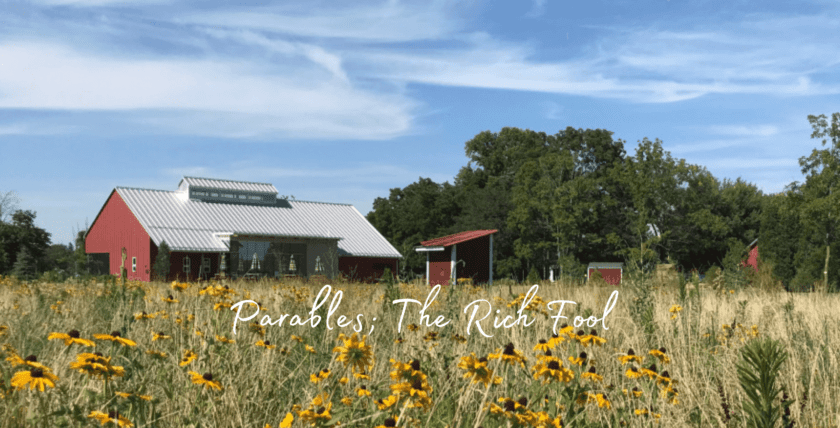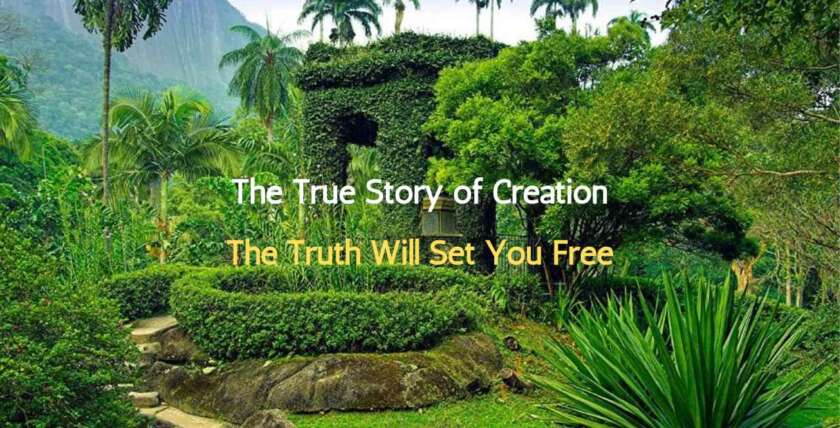Our focus is to let the Spirit of God, through the Word, live in us and change our hearts so that we will reflect the image of God to others in our daily lives. In the beginning, God created man in his image (Genesis 1:26-27). But humanity fell and abandoned the image of the creator for the images of what was created. But when the Son of God came, he showed us God. He was the image of His Father (John 14:9, Hebrews 1:3). As believers in Christ, we’re called to follow him and his example as “Image Bearers” and conform to the image of Christ (Romans 8:29). This is our calling as believers. Our mission in this life is to bear the image of Christ to the world so the world will know him and glorify God.
This has taken me two years to understand. From the time I began Sonday Life until now, I’ve come to realize we live our lives as believers as a reflection of Jesus Christ so others can be saved from death by Christ. Jesus said this in (Matthew 5:16).
This is our path in life: We live until we die. It’s said life is the “dash” between the date we’re born and the date we die. But true life is really the “blank space” after the date we die. That “blank space” is of much greater length than the “dash.” But what is death? Do we truly know? Is death when our physical body stops functioning, or is death something more profound that humanity has been deceived into overlooking and misunderstanding? What is Death Really?
This is what we’re going to look at in this episode as we begin a six-part study into death, resurrection, hell, and heaven. In the first part of the series, we’re going to look at what humanity thinks death is. To understand mankind’s ideas about death, I’m going to start with the Jewish concept of death: Death is darkness (Job 10:18-22, Psalm 88:11-12).
Just a brief historical summary of Israel: Jacob and his sons lived in about 2,000 BC, and Moses led the Exodus around 1,500 BC. From the time Joshua led Israel into the Promised Land, the land was divided among the descendants of the 12 sons of Israel, thus the 12 Tribes of Israel. They were loosely joined together by the Levitical priesthood. Whenever they were attacked by surrounding nations, a judge would be raised by God to lead them in military victories over their enemies. Their first king, Saul, was selected around 1050 BC, and David was the second king around 1000 BC. Around 950 BC, after Solomon died, ten tribes split off and formed Israel, and two tribes (Judah and Benjamin) formed the Southern kingdom of Judah. Israel was conquered and taken captive in 722 BC by the Assyrians. Judah was conquered and taken captive in 586 by Babylon.
Babylonian view of death: As a power, Babylon culture influenced the Middle East from 1800 BC until its defeat in 540 BC by the Medo-Persian empire. People had a soul, and when they died, they went to a place called “Kur,” which the Greeks later called “Hades.” Kur had a ruler named Ereshkigal. In Kur the soul would face judgment, which would determine the fate of the soul in the afterlife. There was a possibility of immortality for the soul, but in the end, immortality was for the gods, not for humans. Therefore, humans die twice.
Medo-Persian view of death: (600-330 BC) The major religious influence of the Medo-Persian Empire was Zoroastrianism. Unlike Babylon, Zoroastrianism was monotheistic. Zoroastrianism had a dualistic cosmic view of good/light and evil/darkness, with a good and evil god. There is an afterlife when a person dies, where they face judgment for their thoughts, words, and actions. This judgment took place at the final restoration of the world when the dead were raised, and judgment was determined for the fate of the soul. They had a heaven where the soul has eternal happiness and light, a purgatory where the soul undergoes purification, and a hell where the soul has darkness and suffering forever.
Plato’s (430-350 BC) view of death: Plato taught the dualism of Body and soul. The soul pre-existed in the “realm of forms,” possessed knowledge from that realm, and entered the body from the realm of forms. Learning was about remembering the knowledge the soul had previously. When the body dies, the soul goes to a place of judgment and is either rewarded or punished accordingly. In Plato’s teachings, philosophers are best suited to teach mankind how to live this life to prepare the soul for its eternal journey.
Hellenistic (325-30 BC) view of death: Epicurus (eat drink and be merry for tomorrow we die) Seneca (Stoics – fate is uncontrollable so why worry about it. It will be what it will be) Pyrrho (since nothing can be known you should be skeptical of everything) Diogenes (lack of concern for any value in embracing societal morays in life or death). Overall, the Hellenistic view of death was it wasn’t something to be occupied with because when you died, that was it, and if it wasn’t, there was nothing you could do about it anyway.
Post-Captivity Jewish view of death: The concept of an afterlife became more pronounced during the time of the second temple (516 BC to 70 AD). We can see this in Daniel 12:1-3 and the intertestamental Apocrypha books.
So, we see this change in the Jewish concept of death from darkness and oblivion to sleep and awakening. With the rest of the nations, we see different views about death. So what is death really? Is it darkness and nothing? Is it a place where we sleep until some awake and others remain asleep? Is it a place where we make amends for our transgressions? Or is death nothing at all, just the end?
Well, in the next episode, we’re going to look at what death is according to God from scripture. I think you’ll be very surprised by the description of death from the Bible. I’ll give you something to think about until the next episode regarding death. Genesis 2:15-17 says Adam and Eve were supposed to die on the day they ate from the tree of the knowledge of good and evil. Did they die the day they ate from the tree? Think about that question.
I hope this study has encouraged you and strengthened your faith in Christ. So, as God wills, we’ll continue our journey in his word. God Bless!


